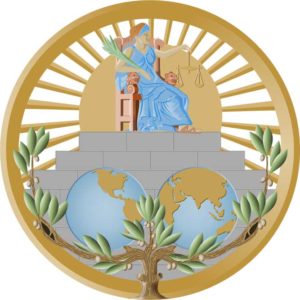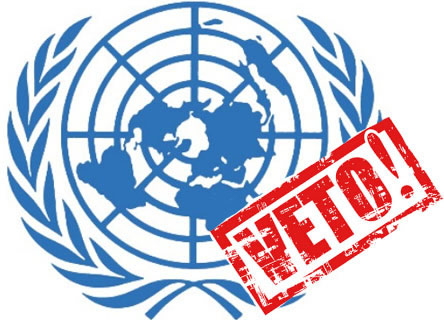How Superpowers control International bodies and make them powerless
While the world has turned into a global village, the role and efficacy of international organisations are under question even though on the surface it appears that they are an indispensable part of international relations, harmony through mutual empowerment and global politics. Citing the case of Nicaragua and Syria, the young student of International Relations -Gurleen Kaur looks at how realism plays a dominant part in the functioning and disorientation of international organisations, becoming the biggest reason for the effective failure of the United Nations. In this analysis, she proposes that Liberalism can be a way forward.
![While the world has turned into a global village, the role and efficacy of international organisations are under question even though on the surface it appears that they are an indispensable part of international relations, harmony through mutual empowerment and global politics. Citing the case of Nicaragua and Syria, the young student of International Relations -Gurleen Kaur looks at how realism plays a dominant part in the functioning and disorientation of international organisations, becoming the biggest reason for the effective […]](https://www.theworldsikhnews.com/wp-content/uploads/2021/05/Nicaragua-360x266.jpg)
HISTORICALLY, REALISM WAS DEMONSTRATED IN international relations through the struggle for becoming World powers and the Cold War is an important example of this where the approach of both the parties -the United States and the Soviet Union, reflected ‘self-interest’ advocating capitalism and communism respectively. At that time, Realism became successful in establishing the structure of international relations.
Today, also, as the five permanent members of the UN Security Council enjoy the ‘Right to Veto’ (their single negative vote can reject a resolution), they are pursuing their interests following realism, which results in the failure of the UN’s core purpose of peacekeeping, implementation of human rights and ensuring civil, economic and political rights of peoples and nations without geographical boundaries.
 For instance, in Nicaragua’s case, the International Court of Justice (ICJ) held the US accountable for violating international law by intervening in their affairs and violating the sovereignty of another state. However, the United States refused to participate in the proceedings and claimed that the ICJ lacked jurisdiction to hear the case. Also, the US prevented Nicaragua from obtaining compensation by blocking the enforcement of the judgement by the United Nations Security Council.
For instance, in Nicaragua’s case, the International Court of Justice (ICJ) held the US accountable for violating international law by intervening in their affairs and violating the sovereignty of another state. However, the United States refused to participate in the proceedings and claimed that the ICJ lacked jurisdiction to hear the case. Also, the US prevented Nicaragua from obtaining compensation by blocking the enforcement of the judgement by the United Nations Security Council.
The US was the only member that put forward arguments against the validity of the court’s judgment and fulfilled the realist approach using its power at the United Nations, effectively resulting in injustice to Nicaragua and a clear example of the UN’s failure to function as an umbrella body to broker peace and ensure justice.

Realism has proved to be the most competing and dominant theory that prevails in International relations where states use IOs as one of the tools in their diplomatic toolbox –states create IOs in order to determine the rules that others must follow. For instance, the US is the major shareholder in many International Organizations including the International Monetary Fund (IMF) and has permanent seats on its executive board.
 According to the IMF conditionality, “When a country borrows from the IMF, its government agrees to adjust its economic policies to overcome the problems that led it to seek financial aid. These policy adjustments are conditions for IMF loans and serve to ensure that the country will be able to repay the IMF.”
According to the IMF conditionality, “When a country borrows from the IMF, its government agrees to adjust its economic policies to overcome the problems that led it to seek financial aid. These policy adjustments are conditions for IMF loans and serve to ensure that the country will be able to repay the IMF.”
 Being the largest shareholder, the US has the power of designing these conditions and as it is the strong supporter of capitalism and neoliberalism, having the largest number of billionaires, it overpowers the world making them adopt neoliberal policies. Also, President Donald Trump’s snub of multilateral organizations as he pursued his “America First” foreign policy in 2018 at the IMF is manipulation at its worst.
Being the largest shareholder, the US has the power of designing these conditions and as it is the strong supporter of capitalism and neoliberalism, having the largest number of billionaires, it overpowers the world making them adopt neoliberal policies. Also, President Donald Trump’s snub of multilateral organizations as he pursued his “America First” foreign policy in 2018 at the IMF is manipulation at its worst.
This kind of dominance by the permanent members at the UN is responsible for the atrocities during the Syrian crisis. Following the outbreak of violence in March 2011, the international community censured the Syrian government for its widespread violations of human rights. The UN Secretary-General has repeatedly called for the situation in Syria to be referred to the International Criminal Court (ICC). Despite this, the UNSC has failed to respond effectively.

Since 2013 the Council has passed 26 resolutions on humanitarian access, peace talks and chemical weapons in Syria. Several of these refer to the government’s responsibility to protect populations, but none have been fully implemented. Russia and China have jointly vetoed 10 draft UNSC resolutions and Russia has independently vetoed an additional 6 drafts.
“Because the United Nations failed to restore order in several recent peacekeeping ventures—most notably in Somalia, Rwanda and Bosnia—and to prevent large-scale violence in Kosovo and East Timor, the organisation is widely perceived as unequal to the principal task set forth in the preamble to its charter, ‘to save succeeding generations from the scourge of war.” (Schwartzberg, 2000).
The failure of the United Nations is not only because of the structure and hierarchy of the organisation but also because the member countries have failed to live up to the expectations and fulfil the obligations expected of them.
“Because the United Nations failed to restore order in several recent peacekeeping ventures—most notably in Somalia, Rwanda and Bosnia—and to prevent large-scale violence in Kosovo and East Timor, the organisation is widely perceived as unequal to the principal task set forth in the preamble to its charter, ‘to save succeeding generations from the scourge of war.”
 At every juncture, the United States of America criticizes the UN for not doing enough while it owes the body several billion dollars. On top of that, the US deploys its own military bases while vetoing the decisions of the United Nations with a clear motivation of protecting its own interests and not heeding to the needs of the people of the region.
At every juncture, the United States of America criticizes the UN for not doing enough while it owes the body several billion dollars. On top of that, the US deploys its own military bases while vetoing the decisions of the United Nations with a clear motivation of protecting its own interests and not heeding to the needs of the people of the region.
Restructuring of international bodies adopting liberalism is perhaps the answer. Adopting liberalism is in the interests of people within respective states as this makes International organisations responsible for furthering international relations.
Even though not practically followed in entirety by superpowers, the establishment of the United Nations arose out of a commitment to liberalism and it did bring in its wake reforms in the areas of women’s rights, universal adult franchise, constitutional protection of fundamental rights, respect for human rights, the universality of humanitarian rights and environmental justice. Liberalism, to an extent, has had a controlling effect on superpowers from exploiting weak countries.
Even though not practically followed in entirety by superpowers, the establishment of the United Nations arose out of a commitment to liberalism and it did bring in its wake reforms in the areas of women’s rights, universal adult franchise, constitutional protection of fundamental rights, respect for human rights, the universality of humanitarian rights and environmental justice.
The UN’s endurance supports ‘realism’ a lot. ‘Liberalism’ has been challenged and overpowered by ‘realism’, still as the motto of the UN closely relates to ‘liberalism’ and maybe in the future, it will flourish.
The debates to restructure the UN and abolish veto powers in times of mass atrocities or promote the equal distribution of powers are already existing on various platforms around the world. ‘Liberalism’ should become the benchmark for the functioning and evaluation of international organisations.

2 thoughts on “How Superpowers control International bodies and make them powerless”